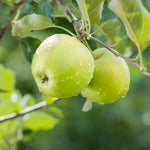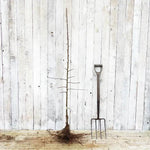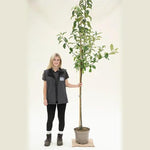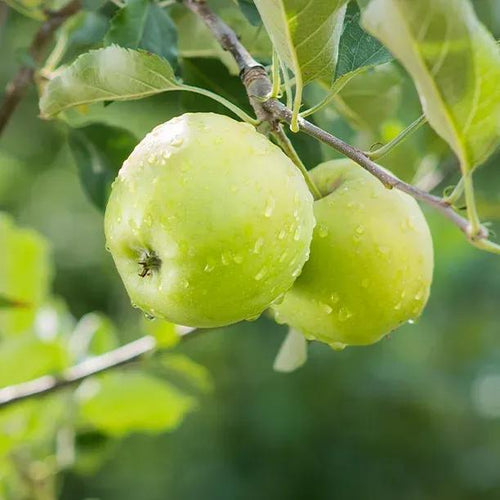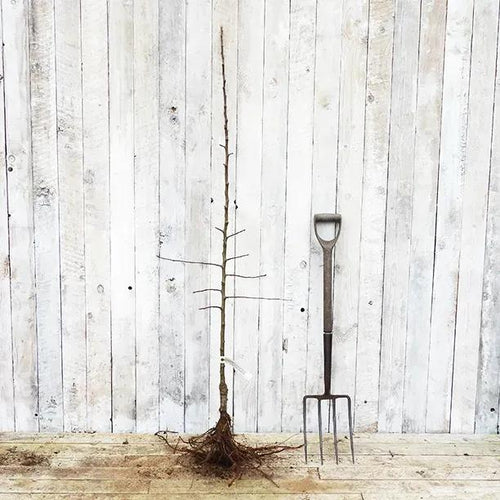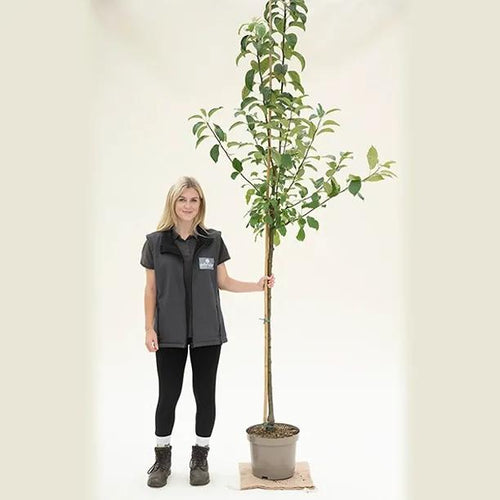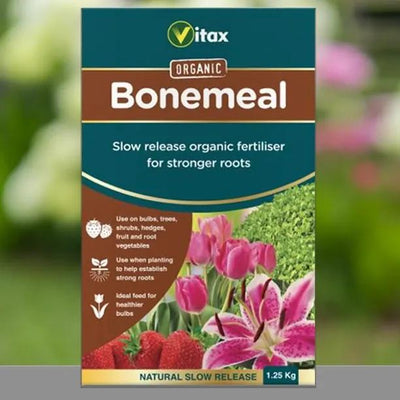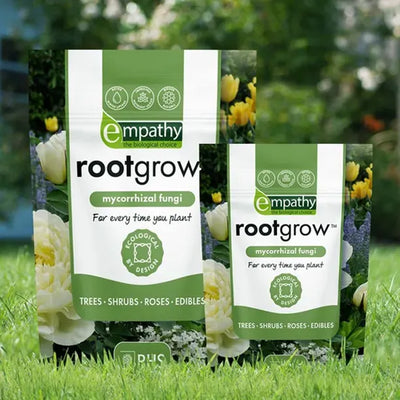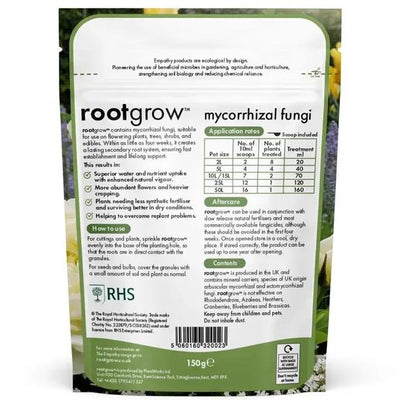 Delivered across the UK
Delivered across the UK Which Best Plant Supplier 2025
Which Best Plant Supplier 2025 1 Year Bareroot Plant Guarantee
1 Year Bareroot Plant Guarantee
About Granny Smith Apple Trees
Granny Smith Apple Trees
Probably the world's most famous green apple, Granny Smith is used as a cooking apple that holds its shape when baked, and as an eater by people who love a tart, acidic flavour with a hard, crisp bite. As with pretty much any fruit, a well home-grown Granny Smith is much better than anything in the supermarket.
She stores exceptionally well, making her popular both commercially and in the garden.
Please note: To ripen consistently well, it likes a long growing season in the warmer Southern and Western parts of the country. However, it's somewhat susceptible to scab, which tends to be more of an issue in warmer areas, so it's not recommended for beginners or people looking for a really low maintenance tree.
Browse our other apple varieties, or all our fruit trees.
Delivery season: Bareroot plants are delivered late Autumn to Spring, about November-March inclusive.
Read our guide to buying apples.
Features
- Cooking & eating. Holds shape when baked.
- Pollination Group: C
- Self-fertile
- Harvest Late October
- Tip-bearer / Partial tip bearer (not recommended for cordons / espaliers)
- Recommended for Southern & Western regions
- Needs full sun
- RHS Plants for Pollinators
- Bareroot delivery, Nov-March
Growing Granny Smith Apples
Apples like a rich, well drained soil, and will thrive on clay in locations that do not get waterlogged in winter.
Granny Smith really needs her sun, and isn't recommended for the North and Scotland. A warm microclimate near a wall or other structure that helps to trap heat is ideal, but as a partial-tip bearer, she isn't ideal for training on wires as a cordon, espalier, etc.
She has a biennial habit, which you can reduce by thinning the crops more on bumper years.
Disease notes: Average susceptibility to scab, powdery mildew and cedar apple rust.
Rootstocks: We use MM106 for Granny Smith, the UK standard for medium-sized trees, ideal for gardeners. Grown as a half-standard, MM106 gives a tree about 4 metres tall, and as a bush about 3 metres.
Pollination Partners for Granny Smith
Your trees are self fertile, making decent crops without a pollination partner, but still perform best with one.
Granny Smith is in Pollination Group C, which cross-pollinates with other apple trees in Groups B, C and D.
Use our Fruit Pollination Checker to quickly find pollination partners, or Apple Pollination Guide to learn more.












 Secure, One-Tap Checkout
Secure, One-Tap Checkout
 Hand Picked, Delivered to Your Door!
Hand Picked, Delivered to Your Door! 1 Year Bareroot Guarantee
1 Year Bareroot Guarantee